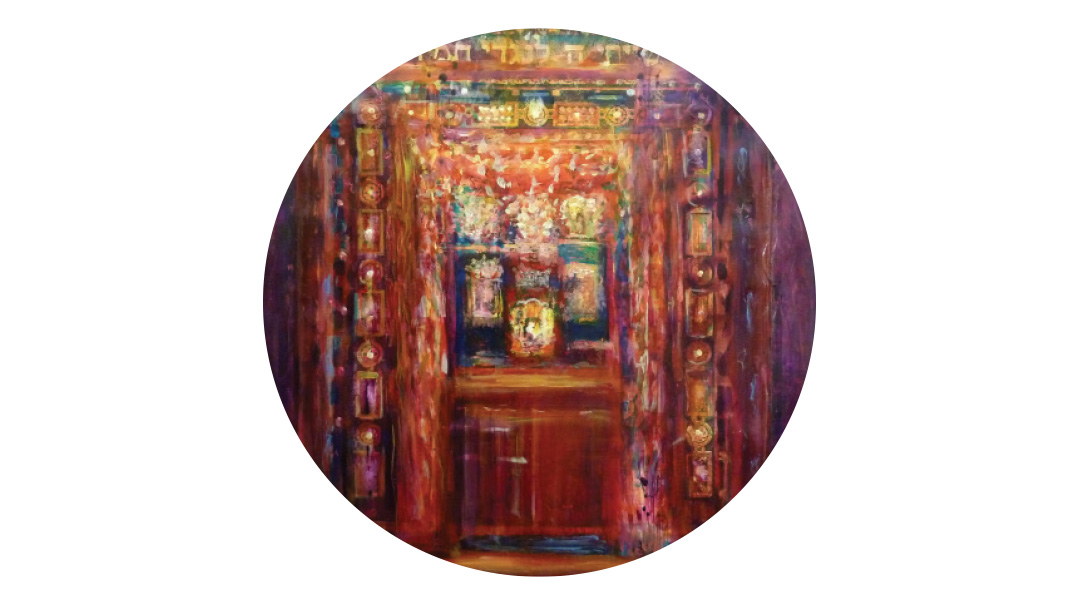The Game of Life


Did you know that an estimated 30 million board games were sold in the United States in 2016?
Playing games is a favorite pastime for both children and adults. People become totally engrossed in a game, single-mindedly focused on winning. They feel a tremendous sense of accomplishment when they succeed in outmaneuvering their opponent.
In actuality, a game has no intrinsic meaning. When a game is over, it’s over. Why do we get so involved in games? Does it really matter who wins a game of Monopoly or Stratego or Rummikub?
As we know, everything in the physical world has a parallel in the spiritual world.
Sometimes, when I watch others passionately determined to win a game, I wonder: Perhaps there are things in life we’re also passionate about and want to succeed in but, like a game, have no enduring value. Am I perhaps watching a reflection of myself?
We all want to engage in meaningful pursuits. What is it that defines an endeavor as enduring and meaningful, rather than game-like and meaningless?
The Value of Shem
After the world was destroyed by the flood, a new world was built by Noach and his three sons, Shem, Cham, and Yafes. The Maharal explains that Shem, Cham, and Yafes represent three primary forces within a person; Shem represents spirituality, Cham represents physicality, and Yafes represents what we call the arts. Each individual is formed by these three primary forces.
Only the force represented by Shem has inherent value. The pasuk says, “V’yishkon b’ohalei Shem — Hashem will dwell in the tents of Shem.” The forces represented by Cham and Yafes have no value in and of themselves. Their value lies in the fact that they can be used in conjunction with Shem, i.e., to enhance spirituality, to intensify a person’s connection with Hashem.
When we relentlessly pursue gashmiyus goals without a higher purpose, when we use our intellect or artistic talents merely for intellectual stimulation or to derive pleasure from beautiful works of art, without any thought of coming closer to the Ribbono shel Olam, we’re indulging in a meaningless, all-consuming game that’s going nowhere and diverting us from our true purpose in life.
However, when we engage in intellectual pursuits or in efforts to beautify our surroundings in order to develop a frame of mind that can more easily serve Hashem, we transform potentially meaningless endeavors into meaningful pursuits. When we engage in the physical and take the time to think that we’re cooking, cleaning, shopping, working, driving car pool, and more, in order to come closer to Hashem by taking care of His children, we inject meaning into our actions.
These thoughts may feel unnatural to us, and perhaps even insincere. However, if we persist and succeed in training ourselves to consistently think, “Maasai l’Melech — my actions are for the King,” we’ll be taking the forces of Cham and Yafes and connecting them to the force of Shem. We’ll be living a life of enduring value.
Get Past the Goalie
We may tell our children, “It doesn’t matter who wins; it’s just a game.” But we know that in fact, it does matter very much to them. Even as adults, we have a strong drive to win a game. Why do we care so much about winning?
Perhaps this competitive spirit is an expression of the innate drive that Hashem implanted within us to conquer our yetzer hara. There’s an ongoing competition every waking moment of our life. The yetzer tov wants us to get close to Hashem and the yetzer hara struggles to block us. Who will win? It’s up to us to utilize our natural desire to succeed, not to achieve meaningless goals, but to achieve the true purpose of our existence.
In a game, the greater the challenge, the greater the excitement when we win.
In his book Reflections of the Maggid, Rabbi Paysach Krohn tells the story of Rabbi Sholom Schwadron, who organized a learning group for teenagers in the late 1940s. One of the regular attendees missed three nights of learning. Thinking he might be sick, Rav Schwadron went to his home to visit him, only to find the young man in the best of health. When Rav Schwadron asked him why he’d stopped coming to the classes, the boy at first avoided answering him. But after much prodding, he hesitatingly admitted, “I love soccer and I live for soccer. The soccer tournaments are taking place this week in the evenings and I want to watch them. Don’t worry, I’ll be back in class next week.”
Rav Schwadron asked his student to explain the game.
“There are two separate teams, with nets behind the teams. Each team has to try to kick the ball into the opposite net. When the team succeeds, it’s the best feeling.”
“What’s so special about kicking a ball into a net?” Rav Schwadron queried. “I can easily kick 20 balls into a net.”
“No… you don’t understand,” the young man answered. “There’s a goalie from the opposite team who tries to block the ball from reaching the net.”
“Surely the goalie doesn’t stand in front of the net all day and night,” Rav Schwadron said. “Why don’t they wait until the goalie goes home? Then they can kick as many balls as they want in the net.”
“That would be pointless!” the boy exclaimed. “The whole idea of the game is to score a goal when the goalie’s trying to block you. Without the goalie, there’s no challenge, no feeling of accomplishment, no excitement when you win.”
“Ahhh… Now I understand,” said Rav Schwadron. “When you come to the Gemara class when there’s nothing else competing for your time or interest, that’s like kicking the ball into the net when the goalie’s gone. When you come to class even though you really want to watch the soccer game, that’s like getting the ball in the net when the goalie is doing everything in his power to block you.”
The next day, the young man was back in Gemara class.
We’re all faced with numerous challenges that can potentially block us from reaching our goals in life. The challenges may be in the area of health, relationships, or finances. They may be internal challenges, like struggles in emunah or middos. The yetzer hara tries to defeat us by using these challenges to block us from connecting with Hashem.
Being a Winner
Can we train ourselves to view these challenges the same way we view the goalie of the opposite team? Can we remind ourselves that our challenges are placed in our life in order for us to overcome them, and that the greater the challenge, the greater the accomplishment? Can we think of our obstacles as opportunities to score points?
In the Torah’s account of the creation of the world, it states numerous times, “Vayar Elokim ki tov… Hashem saw that it was good.” After the completion of the sixth day, the pasuk tells us, “Vayar Elokim es kol asher asah v’hinei tov me’od — Hashem saw everything He made and behold, it was very good.” Chazal explain that “very good” refers to the yetzer hara.
How could the force that seems to be the opposite of good be referred to as “very good”?
What is the definition of good? Rav Aharon Feldman, in his introduction to Part I of The Juggler and the King, defines “good” as anything that brings us closer to achieving the purpose for which we were created; to develop a clear recognition of Hashem as our King and to live our lives in consonance with that recognition. This purpose can be realized to the fullest only when we have the opportunity to choose an alternative path, and yet we choose truth. Each time the yetzer hara tries to pull us away from Hashem and we steadfastly resist, we become closer to accomplishing our life’s mission. The yetzer hara is called “very good,” because it is the vehicle for us to achieve our purpose in life.
Let’s take the competition with the yetzer hara very seriously and strategize how we can outmaneuver him. Let’s do whatever we can to prevent the yetzer hara from blocking us in our efforts to achieve closeness to Hashem. By doing so, we can all be winners in the game of life.
Originally featured in Family First, Issue 618. Rebbetzin Suri Gibber has been involved in chinuch habanos for decades, first as general studies principal in Bais Yaakov High School of Miami, and, for the past 15 years, as principal of Bais Yaakov High School of the Twin Cities. She gives adult education classes as well.
Oops! We could not locate your form.







